AFA Journal
Special edition
July-August 2017
36. Pat Trueman endsexualexploitation.org AFAJ 10/10 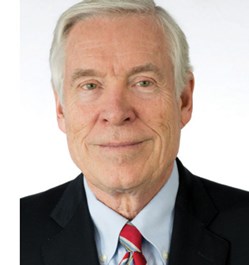
PORN: TABOO TO TRENDY TO TRAGIC – In the early days of television, married couples slept in separate beds because the creators of those shows did not want to put the idea of sex into the heads of viewers. Today, sex scenes – most often illicit – are the norm.
How did American culture move so far so fast?
It is largely due to the 1960s sexual revolution, when sex went from a private experience of beautiful intimacy between a married couple to an experience of cheap fun devoid of any true connection.
Since its beginning, AFA has been a steady voice for the biblical view of sex, warning the culture of the destructive consequences of stepping outside God’s moral law.
Those consequences are evidenced by increases in unwed parenthood, abortions, sexually transmitted diseases, broken marriages due to pornography addiction or affairs, and sexual violence moving from entertainment screens to real life.
But hope is never lost. While fighting on the front lines, AFA has highlighted and partnered with ministries offering the hope of Jesus Christ to those seeking freedom from pornography, same sex attraction, and other sexual aberrations.
Patrick Trueman is one such partner who has spent his career helping people walk away from pornography. For a number of years he co-hosted AFA Today with Don Wildmon on AFR. Trueman is now president of National Center on Sexual Exploitation.
AFA Journal: How did America view sexuality and pornography 40 years ago?
Pat Trueman: There was a taboo nature to pornography, and those who used it were on the fringe of society. Part of that was because it was difficult to get. You had to go to a particular shop in a seedy part of town. The more elite class bought into the Playboy magazine philosophy that tied porn to fashion, sports, and events of the day.
But even among Playboy readers, pornography wasn’t something people talked about and certainly didn’t celebrate as our culture does today.
AFAJ: Let’s talk about today. How does culture view porn in the 21st Century?
PT: Today porn is seen as normal activity for young people, including about 30% of women. Teenagers, and even adults, openly talk about it, trade it, and show it around. This means even those who are trying to avoid it can be exposed by just participating in a conversation with peers.
Recent studies show some 70% of young men regularly indulge in porn. It has become a normalized part of daily life in schools, campuses, and work life. The shame element of pornography is gone. People who view pornography may feel shame at the initial stages, but I believe the openness with which pornography is viewed and discussed has made it easy to push that aside and become desensitized to it.
AFAJ: Where do you see the culture heading, and how should Christians respond?
PT: Unless the church actively opposes porn and articulates a reason beyond morality to oppose it, I think it’s a lost battle.
But in reality, many churches and leaders such as Josh McDowell are talking about the issue. They are discussing porn in a way that is more reachable, more approachable to young people.
We are talking about sin, but we are also talking about the public health crisis, about sexual dysfunction, about sexual exploitation. That message is resonating across the country, especially among the young.
One way churches can be proactive is to have beneficial material to help those in need. A recent Barna study found 92% of churches have nothing to offer members struggling with sexual sin. So church has become the last place for Christians with that struggle, but it should be the first.
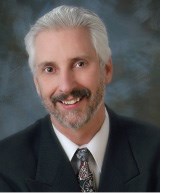 37. Steve Gallagher purelifeministries.org AFAJ 10/07
37. Steve Gallagher purelifeministries.org AFAJ 10/07
Pornography addiction and sexual sins are a taboo subject in many churches today. The subject was untouchable when Steve Gallagher started Pure Life Ministries in 1986. He and his wife Kathy knew others were dealing with sexual sin and finding no way out.
Steve’s personal battle with pornography started when he was 10 and found a Playboy magazine under his dad’s bed. By adulthood, he had graduated to massage parlors and prostitutes.
Then he met Kathy and swore to give it all up for her. He couldn’t. Their marriage lasted two years before she left him. But God delivered Steve from sexual addiction, restored their marriage, and inspired their ministry.
Don Wildmon met Steve in the late 1980s. He came back home saying, “We’ve got to write an article on this guy’s ministry.”
“That article put us on the map,” said Steve. “We began getting calls from all over.”
Their outreach has never slowed down. In 1989 they established a residential program where men are offered freedom from all sorts of sexual addictions.
The message of their ministry is that freedom and healing through Christ are possible. If He can bring Steve and Kathy through the storm, He can bring anyone through.
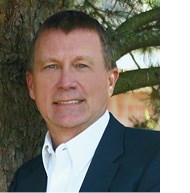 38. David Jones restorationpath.org AFAJ 10/12
38. David Jones restorationpath.org AFAJ 10/12
The path to freedom from pornography and sexual addiction can be long, difficult, and seemingly circular. People caught in the web often take two steps forward only to find themselves taking four steps back.
That is why David Jones named his ministry Restoration Path – to help restore men to sexual purity.
Knowing this journey is not going to be completed overnight, Jones developed a six-week experience full of study and face-to-face counseling.
“After they go through that six weeks – and some take longer than six weeks – they have a specific battle plan. We make sure they finish with practical tools and weapons they can use to become victorious,” Jones told AFAJ.
Not only does Jones help walk men out of sexual addiction, he also seeks to equip the church to walk alongside men and bring them to freedom in Christ.
“We go into churches to educate, teach, and train their staff. We want to take the mystery out of sexual sin,” he said.
Jones lives in Memphis, Tennessee, but uses the Internet as a major tool to reach men across the world. He understands sexual sin is as close as the nearest computer. He wants Restoration Path to be just as close and accessible.
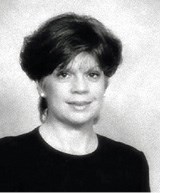 39. Carolyn McKenzie ccvmemphis.org AFAJ 03/96
39. Carolyn McKenzie ccvmemphis.org AFAJ 03/96
She experienced the terrors of the Vietnam War as an Army nurse, but nothing prepared her for the horrors she saw while accompanying an undercover police officer on nighttime patrol.
“By 3:30 that morning, I had gone through five bookstores, two strip clubs, and one so-called modeling studio,” Carolyn McKenzie later recounted. She saw first hand the destruction wrought by the sex industry in her hometown of Memphis, Tennessee, and decided to do something about it. She founded Citizens for Community Values in 1994.
The original targets of CCV were peep shows, topless nightclubs, and adult bookstores. Soon, McKenzie and the team she led realized their efforts should also be focused on the people ensnared by the industry.
CCV began a program called A Way Out for women with any involvement in the local sex industry, especially topless dancers. McKenzie started by helping a single girl leave a strip club. She babysat the young woman’s child, helped her find housing, and assisted her in finding a meaningful job.
When Don Wildmon heard of McKenzie’s determination to rescue the exploited women in her city, he reached out to her and assisted in raising funds for the new ministry.
McKenzie, mother of four boys, said, “I used to ask God why I didn’t have any little girls. Little did I know He’d bring me a whole passel of them!” McKenzie is now retired, but the work she began as a one-woman project continues to have far reaching impact.
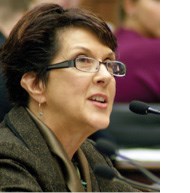 40. Linda Smith sharedhope.org AFAJ 10/09
40. Linda Smith sharedhope.org AFAJ 10/09
Linda Smith’s fight against human trafficking began before she had even heard of the issue. She served in the Washington state House of Representatives (1983-86). In 1996, she launched a successful write-in campaign to defeat the only Republican candidate running for Washington’s 3rd congressional district.
Once settled in the nation’s capital, she took a 1998 fact-finding tour to Falkland Road in Mumbai, India, site of one of the world’s worst brothel districts. The experience moved her to use the network and knowledge her position had given her to begin raising funds to found Shared Hope International.
She surrendered her seat in Congress, and SHI soon became a major resource for research on human trafficking, a consistent advisor to state and national lawmakers, and a respected advocate for trafficking victims.
SHI developed an annual report card to show each state how well it protects children and prosecutes traffickers. Their rankings have led several states to see children as victims and those who sexually exploit them as criminals deserving prison sentences.
As a highly regarded leader in the global fight against trafficking, Smith has written several books including From Congress to the Brothel and Renting Lacy: A Story of America’s Prostituted Children. 
Other articles in the 40 FAITHFUL series
We Salute You
God’s church in ministry
God’s first institution
God’s image in man
God’s Word and words
God and government